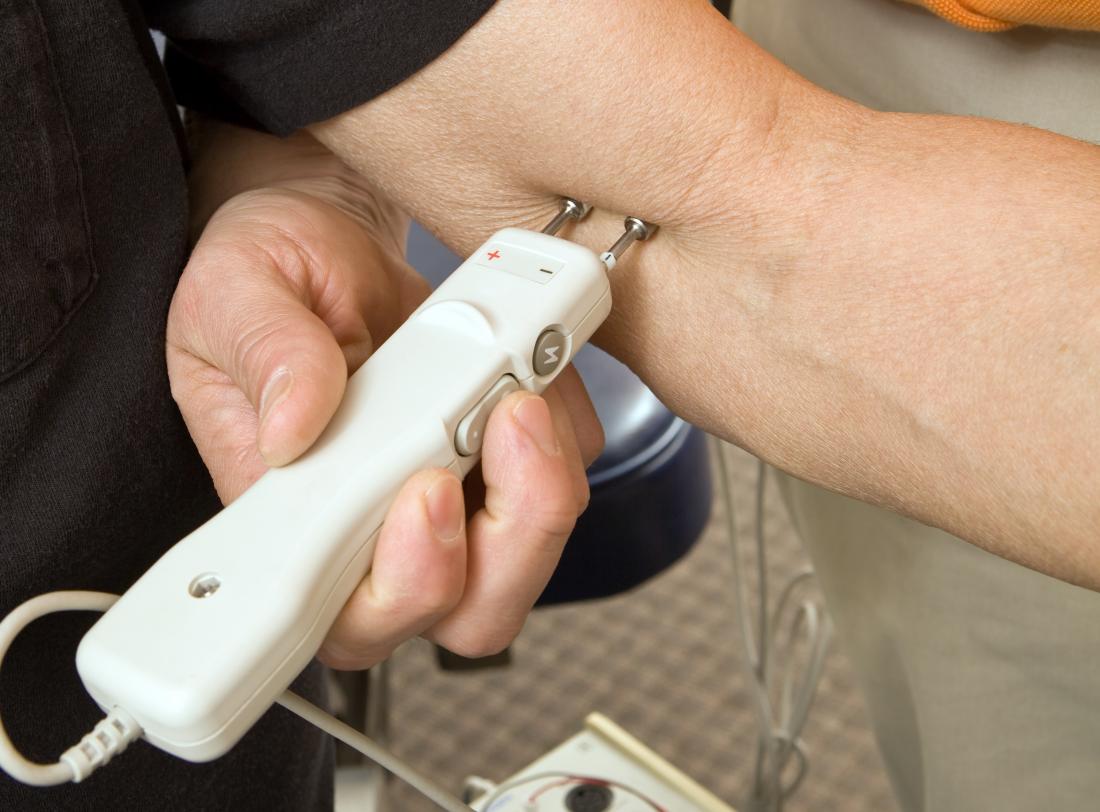The femoral nerve is one of the largest nerves in the body. It begins in the pelvis and separates into several smaller branches. These nerve branches control the movements of various leg muscles.
The femoral nerve itself mainly controls the thigh muscles. It is responsible for hip bending and knee extension. The femoral nerve also receives messages from the skin when there is pressure on the thigh or inner calf.
Damage to the femoral nerve can cause numbness, weakness, or paralysis of the legs.
In this article, we discuss the causes, symptoms, and treatments associated with femoral neuropathy.
What causes femoral neuropathy?

People with diabetes are at an increased risk of developing femoral neuropathy.
Direct trauma to the femoral nerve can cause femoral neuropathy. This trauma can come from an injury or a surgical procedure that involves the hip or abdomen.
People can also develop femoral neuropathy as a complication of another medical condition, such as:
- diabetes
- obesity
- tumors or a growth on the kidneys
- masses on the muscles in the thigh
- pressure on the femoral nerve for an extended period
- a fractured pelvis
- bleeding in the abdomen
- vitamin deficiency
- exposure to toxic substances
- infection-related inflammation
Symptoms
The exact symptoms of peripheral neuropathy vary depending on the exact location and the extent of the nerve damage. Numbness in the leg is usually the first symptom of femoral neuropathy.
Signs and symptoms of femoral neuropathy include:
- numbness or tingling of the leg
- muscle weakness
- muscle cramping
- sharp, jabbing pain
- difficulty walking or extending the knee due to muscle weakness
- atrophy, or shrinking, of the thigh muscles
- reduced sensation of touch
Diagnosis

Nerve conduction velocity tests can help a doctor diagnose femoral neuropathy.
There are many potential causes of femoral neuropathy.
A doctor will perform a basic physical examination to determine whether or not someone has femoral neuropathy. They will also determine whether any other nerves are also affected.
Carrying out physical tests and exercises will allow the doctor to examine specific muscles that the femoral nerve controls. They will also monitor knee reflexes and ask questions about the level of sensation in the front of the thigh and inner calf.
They will also ask about the person’s medical history, such as recent injuries, recent surgeries, and lifestyle risk factors.
The doctor may then either refer the person to a neurologist or recommend further testing to confirm their diagnosis and determine how much nerve damage is present. They will then try to determine whether or not to order additional diagnostic tests.
Other tests that could help diagnose femoral neuropathy include:
- Nerve conduction velocity (NCV) tests. NCV tests measure how quickly electrical signals move through nerves.
- Neuromuscular ultrasound. This is a relatively new method that uses ultrasound technology to diagnose and guide treatment for medical conditions that affect nerves and muscles. Ultrasounds use sound waves to create images of the body’s internal structures. Doctors can use ultrasounds to identify any abnormalities in the nerve’s shape.
- Electromyography (EMG). EMG records the electrical activity of muscles.
- MRI scan. An MRI scan uses magnetic fields to generate images of the body’s internal structures.
- CT scan. A CT scan combines X-ray and computer technology to produce images of different bodily structures.
Treatment and exercises
Treatment for femoral neuropathy varies depending on the cause and extent of the nerve damage. Treatment aims to address the underlying cause of the nerve damage and to relieve symptoms.
If pressure on the nerve is causing neuropathy, treatment will focus on reducing pressure on the nerve. Sometimes, femoral neuropathy resolves on its own without treatment.
Some treatments of femoral neuropathy include:
Medication
A doctor may prescribe corticosteroids to reduce inflammation and swelling. Over-the-counter or prescription pain medications can help relieve painful and uncomfortable symptoms.
In some cases, a healthcare provider might recommend a nerve block to reduce femoral neuropathy pain. A nerve block is a local anesthetic that interrupts, or “turns off,” the pain signals that travel along a certain nerve.
Surgery
If a growth or tumor is blocking the femoral nerve, a doctor might recommend surgery to remove it.
Another surgical procedure called femoral decompression focuses on reducing pressure on the femoral nerve and improving blood flow to the upper thigh.
Lifestyle remedies
In some cases, making lifestyle changes can reduce the symptoms of femoral neuropathy.
Lifestyle changes can include:
- avoiding tight clothing
- avoiding activities that can put pressure on the femoral nerve for extended periods of time, such as sitting
- losing weight if diabetes or excess weight contribute to the nerve damage
Physical therapy

Physical therapy can help maintain and improve mobility.
Physical therapy exercises aim to improve mobility and maintain muscle strength during the recovery processes.
Some common physical therapy exercises that help improve symptoms of femoral neuropathy include:
- hip abduction
- hip rotation
- kneeling hip flexor stretch
Where appropriate, a doctor may recommend that a person wears a knee brace to help them walk and prevent their knees from buckling.
Complications
If a person does not receive treatment for femoral neuropathy, it can lead to permanent nerve damage or nerve death.
People with femoral neuropathy are at risk of sustaining injuries to their legs that may go unnoticed due to loss of sensation.
When to see a doctor
People should speak with their healthcare provider if they experience any symptoms of femoral neuropathy.
Outlook
Femoral neuropathy can be debilitating, but it is rarely fatal.
A person with femoral neuropathy can make a full recovery as long as a doctor correctly identifies the cause of the nerve damage and the individual receives treatment before the nerve sustains any permanent damage.
Summary
Femoral neuropathy is a broad term that refers to any medical condition that causes femoral nerve damage. Common symptoms include numbness, weakness, or paralysis of the legs.
Femoral neuropathy can develop as a result of injuries, surgical procedures involving the hip or abdomen, or as a complication of another medical condition, such as diabetes.
The overall outlook for people who have femoral neuropathy is promising. Most people show signs of improvement within several years of symptom onset.
